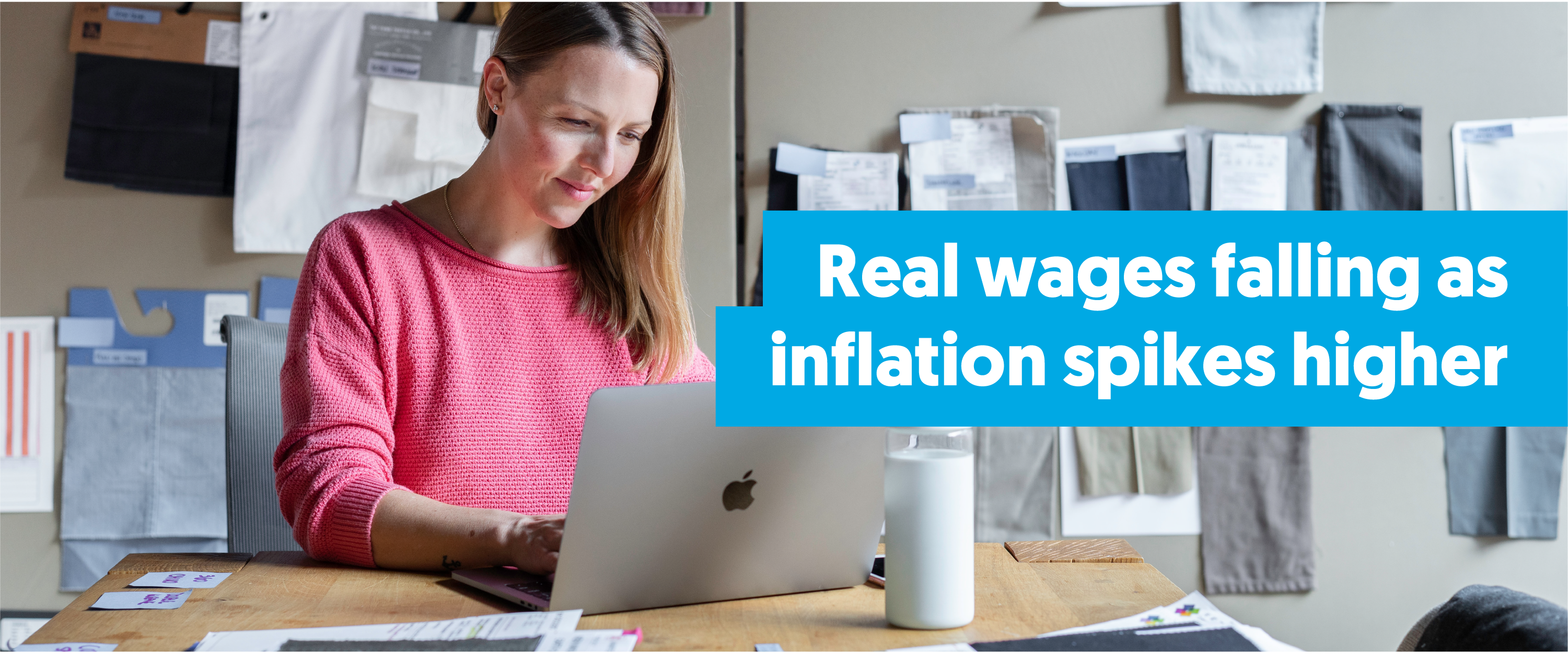
Wage growth continues to fail to keep pace with the rate of inflation, according to new figures.
The Consumer Price Index rose 5.1% in the year to the March quarter, but wages grew only 2.4%, according to the Australian Bureau of Statistics (ABS).
The disparity between the rates of inflation and wage growth represents a continuing decline in so-called real wages.
Reversing this trend became a major issue in the recent federal election campaign won by Labor. It prompted new Prime Minister Anthony Albanese to say he would support a 5.1% wage rise if such a proposal were put before the Fair Work Commission.
Wages have risen in the past five quarters from a low point of 1.4%, which was registered in the December 2020 quarter.
The ABS found private sector pay rose 2.4% in the March quarter, a consistent result since the September 2021 quarter. Public sector wages increased 2.2%, continuing the slight upward trajectory that’s been evident for the past nine months.
In the 12 weeks to the end of March, the increase in private sector wages was driven by regular annual salary reviews. The ABS said it registered “a small number of larger increases paid to retain and attract in-demand skilled workers”.
Overall, the main beneficiaries of higher pay were in administrative and support services, education, training and the arts, which all registered a quarterly rise of 0.8%.
The lowest growth was recorded in retail, accommodation and food services, where workers received increases averaging 0.3%.
Workers in NSW, Victoria, South Australia and Tasmania recorded the highest quarterly rises of 0.6% for the 12 weeks to the end of March.
The strongest annual growth rate is in Canberra (2.8%), while the Northern Territory (1.9%) has the lowest annual wage growth.
The ABS said in a statement: “Jobs covered by individual arrangements continued to be the largest contributor to wage growth.
“Labour market pressures have provided a gradual upward influence. The contribution of enterprise agreements remained relatively consistent, supported by regular public sector schedule wage rises. The contribution from award jobs returned to a level consistent with historical March quarters.”
However, wages have failed to keep pace with the cost of living, which has now risen for the past seven quarters. Annual inflation is at its highest since 1990.
ABS slated blame on rising housing and construction costs and the cost of fuel caused by a combination of COVID-related supply chain issues and Russia’s invasion of Ukraine.
Trimmed inflation, which excludes large rises and falls in prices, stands at 3.7%, the highest level since March 2009, the ABS noted.
However, petrol had risen 11% year-on-year, and new dwelling purchases by owner-occupiers were up 5.7% on average.
The ABS said new dwelling prices had recorded their largest rise since September 2000, following the introduction of the GST.
